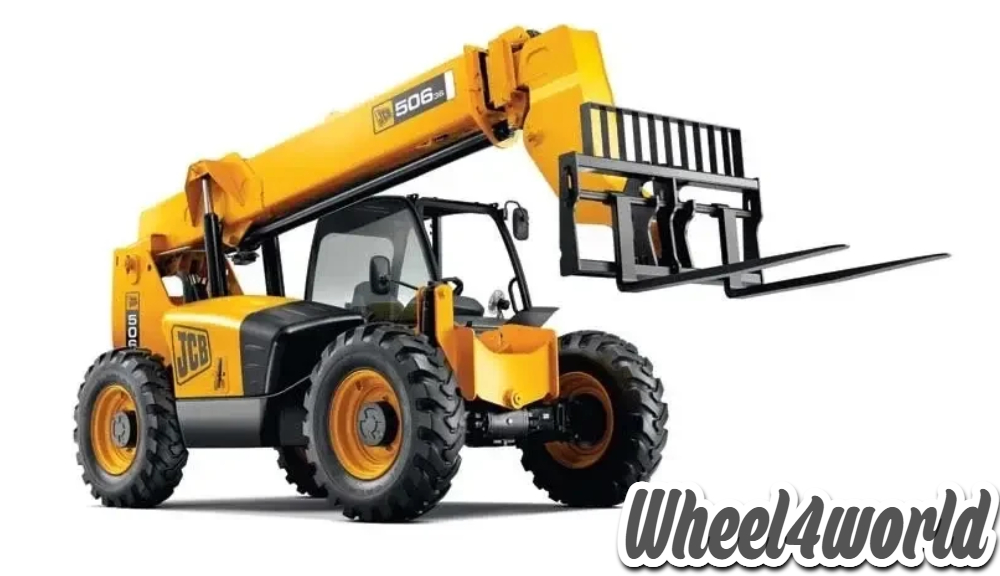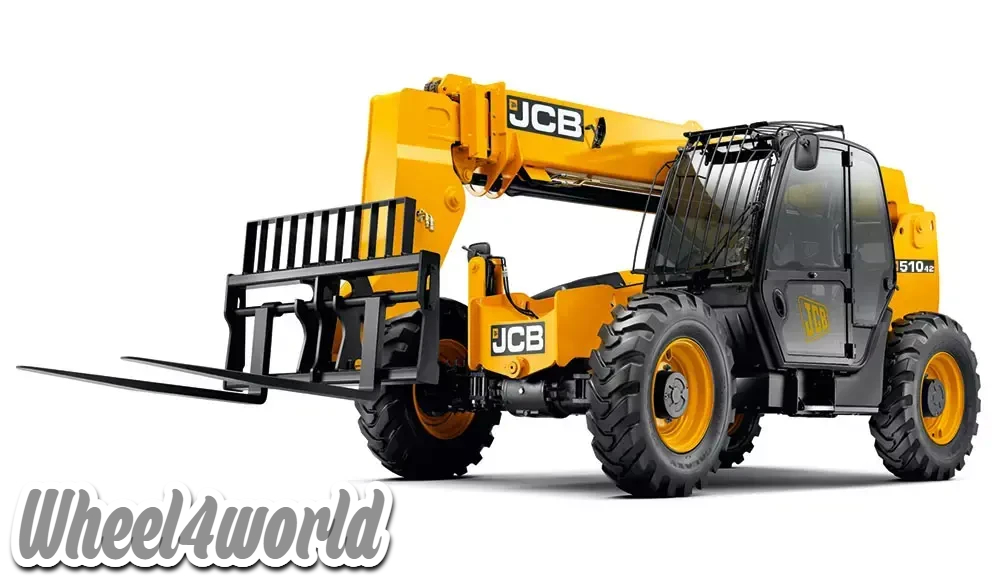
JCB continues to lead the way in engineering, innovation, and dependability in the fields of heavy machinery and material handling. JCB forklifts, a mainstay in sectors including construction and warehousing, are known for their sophisticated technology and sturdy build. For a professional audience, this essay explores the complex world of JCB forklifts, revealing its characteristics, uses, and importance.
Defining JCB Forklifts
Originating from JCB (Joseph Cyril Bamford), a global leader in construction and agricultural machinery, JCB forklifts are precision-engineered material handling vehicles made for lifting, transporting, and organizing loads with exceptional efficiency. The brand’s dedication to quality, innovation, and versatility is reflected in these forklifts, which fit a variety of operational contexts and are essential for businesses looking to optimize their logistics and operational procedures.
Core Features of JCB Forklifts
- High-Performance Powertrain JCB forklifts promise strong torque output, excellent fuel efficiency, and lower emissions thanks to their cutting-edge engines. Because these engines meet strict environmental regulations, they are a sustainable option for contemporary industries.
- Precision Hydraulics Sophisticated hydraulic systems improve productivity and lower material handling mistakes by allowing workers to perform exact motions that guarantee smooth load lifting, tilting, and placement.
- Durable Construction Crafted with premium-grade materials, JCB forklifts are engineered to endure demanding environments. Reinforced masts, resilient chassis, and heavy-duty components contribute to their long operational life.
- Operator-Centric Design JCB promotes operator ergonomics with roomy, climate-controlled cabins, easy control systems, and better visibility. These features prevent tiredness, promoting efficiency and accuracy in lengthy operations.
- Versatile Configurations JCB’s diverse forklift lineup includes models such as rough terrain, electric, and industrial forklifts. Each variant addresses specific operational challenges, ensuring optimal performance across varied industries.
- Comprehensive Safety Mechanisms Risks are reduced by safety technologies such automatic shut-off systems, load stability indicators, and rollover protection. These safeguards guarantee safe operations, protecting both people and property.
- Maintenance-Friendly Design Accessibility and modularity characterize JCB forklifts, simplifying routine maintenance. Features like quick-access panels and diagnostic tools minimize downtime, keeping operations running smoothly.
Strategic Advantages of JCB Forklifts
- Operational Efficiency Designed to handle substantial workloads efficiently, JCB forklifts optimize throughput in logistics, manufacturing, and beyond.
- Economic Sustainability With durable construction, extended service intervals, and energy-efficient designs, JCB forklifts present a cost-effective material handling solution.
- Enhanced Workplace Safety Comprehensive safety features protect both operators and goods, reducing incidents and associated operational disruptions.
- Eco-Conscious Engineering Electric variants and low-emission engines align with sustainability goals, allowing businesses to minimize their environmental impact.
- Cross-Industry Applicability From rugged construction sites to streamlined warehouses, JCB forklifts excel in diverse operational landscapes.
Industrial Applications of JCB Forklifts
- Construction Sector JCB’s rough terrain forklifts dominate construction sites with their ability to traverse uneven surfaces and handle substantial loads such as concrete blocks and steel beams.
- Warehouse Management Compact and agile electric forklifts are ideal for high-density storage environments, facilitating precise stacking and retrieval operations in confined spaces.
- Agricultural Operations Durable designs allow JCB forklifts to handle tasks like transporting feed, hay bales, and farming equipment, even under challenging outdoor conditions.
- Logistics and Freight Handling Efficiency in loading and unloading cargo makes JCB forklifts integral to the logistics chain, reducing turnaround times in transportation hubs.
- Manufacturing Facilities In production settings, JCB forklifts streamline the movement of raw materials and finished goods, enhancing workflow consistency and output.
Selecting the Optimal JCB Forklift
- Define Operational Parameters Evaluate tasks such as load weight, lift height, and maneuverability to determine the best forklift configuration.
- Examine Fuel and Power Options Select between electric, diesel, or LPG-powered models based on operational needs, such as indoor air quality or outdoor endurance.
- Assess Customization Needs Explore JCB’s range of attachments, including booms, clamps, and buckets, to expand the forklift’s functional capabilities.
- Factor in Maintenance and Support Choose models with accessible maintenance features and ensure reliable after-sales support for seamless operations.
Why JCB Forklifts Excel
JCB’s commitment to innovation and quality positions its forklifts as industry leaders. Continuous enhancements, robust customer service, and cutting-edge technology reinforce JCB’s reputation as a trusted partner in material handling.

Maintenance Best Practices
- Routine Inspections Regularly check critical components like tires, brakes, and hydraulic systems to preempt operational failures.
- Consistent Lubrication Proper lubrication of moving parts minimizes wear and tear, extending the equipment’s lifespan.
- Filter Maintenance Ensure timely cleaning or replacement of air, fuel, and hydraulic filters for optimal engine performance.
- Adherence to Manufacturer Guidelines Follow JCB’s prescribed maintenance schedules to uphold warranty and performance standards.
- Operator Training Educate operators on proper usage techniques to maximize efficiency and identify potential issues proactively.
Conclusion
By combining cutting-edge technology, ergonomic design, and sturdy construction, JCB forklifts are the epitome of innovation and reliability in the material handling space. Businesses that choose JCB are investing in a legacy of excellence that guarantees increased operational efficiency and long-term value.


